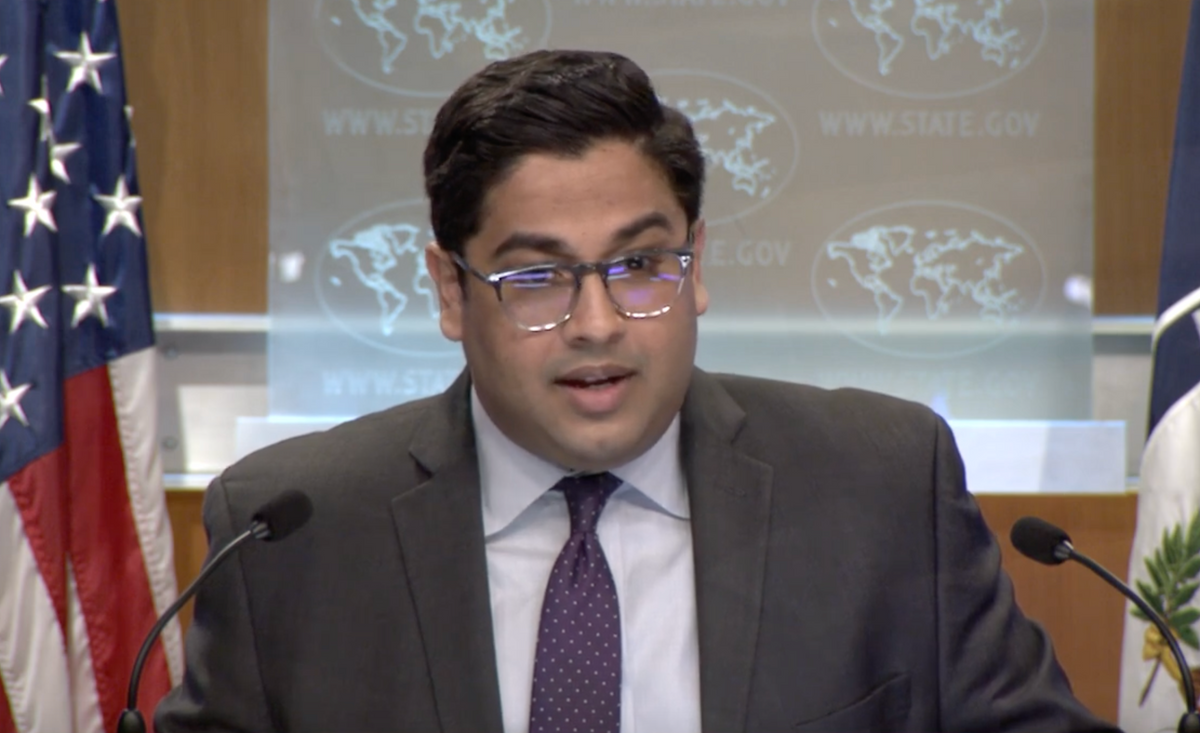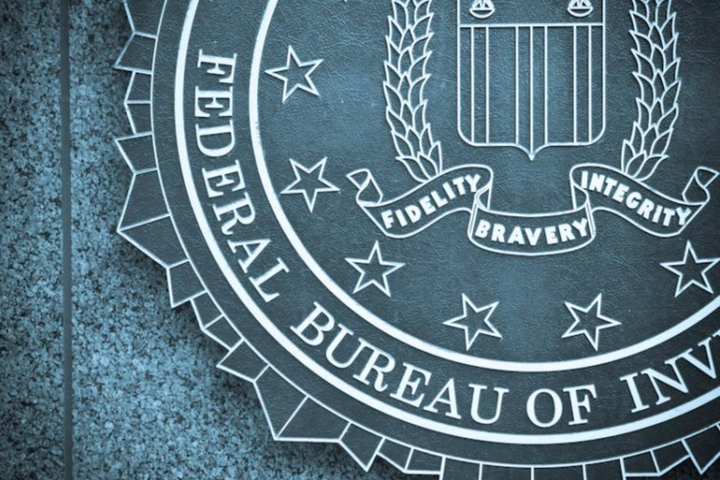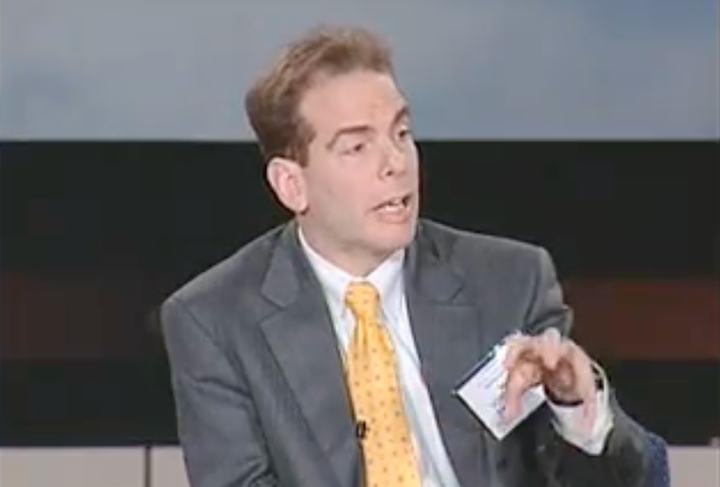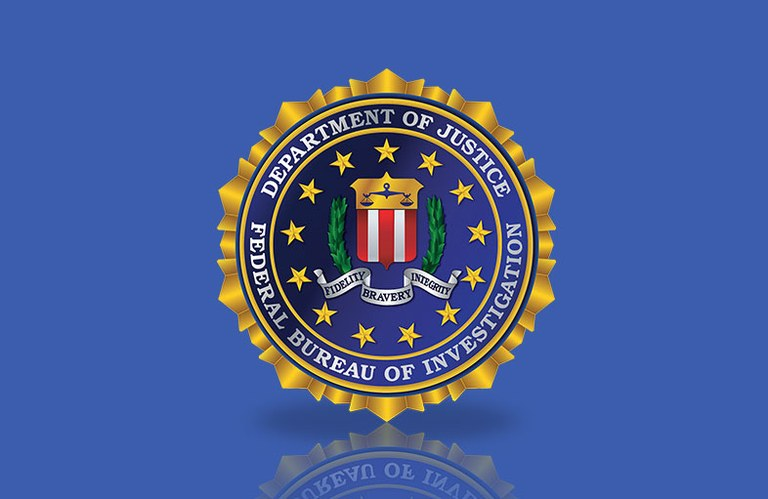After Years Of Refusing To Comment, State Department Backs Assange Prosecution

The following article was made possible by paid subscribers. Support independent journalism on whistleblowers and press freedom and become a subscriber with this limited offer for World Press Freedom Week.
On World Press Freedom Day, the United States State Department abandoned its policy of not commenting on the case against WikiLeaks founder Julian Assange and essentially backed the prosecution against him.
Matthew Lee of the Associated Press asked State Department spokesperson Vedant Patel “whether or not the State Department regards Julian Assange as a journalist who would be covered by the ideas embodied in World Press Freedom Day.”
“I’m not asking for the [U.S. Justice Department point of view. I’m asking for what the State Department thinks,” Lee said.
It was not the first time Lee had posed this question. In 2021, on World Press Freedom Day, Lee asked if President Joe Biden’s administration was looking into the Assange case, “his detention, his extradition, the request for extradition here, the charges against him?”
“I realize you can’t speak for DOJ, but from the State Department’s perspective, is the current position still – does that still hold? Do you believe that Mr. Assange is a journalist?” Lee added. “And given the importance you place on accurate and factual information being disseminated, do you believe that the information that was published based on the U.S. government documents that he obtained and put out was either unfactual or inaccurate?”
Jalina Porter, who was a spokesperson for the State Department, avoided the question. “So to your specific on Julian Assange, we’ll have to get back to you on that.”
But now, with Biden going around repeatedly declaring that “journalism is not a crime,” Patel read a prepared response.
“The State Department thinks that Mr. Assange has been charged with serious criminal conduct in the United States, in connection with his alleged role in one of the largest compromises of classified information in our nation’s history,” Patel declared. “His actions risked serious harm to U.S. national security to the benefit of our adversaries."
Patel continued, “It put named human sources to grave and imminent risk and risk of serious physical harm and arbitrary detention. So it does not matter how we categorize any person, but we view this as something, he’s been charged with serious criminal conduct.”
The response was lousy and stale. The State Department basically dusted off a few talking points from 2010, when WikiLeaks first published U.S. State Embassy cables that exposed the inner workings of U.S. diplomacy.
To be clear, Assange’s “role” was that of a publisher who received documents from U.S. Army whistleblower Chelsea Manning. A 2011 review by the Associated Press of sources, which the State Department claimed were most at risk from the publication of cables, found no evidence that any person was harmed. The potential for harm was “strictly theoretical.”
Lee appropriately pushed back on the idea that being charged with “serious criminal conduct” made Assange a person unworthy of support on World Press Freedom Day.
“Yeah, but anyone can be charged with anything. Evan Gershkovich has been charged with a serious criminal offense in Russia, and you say that he is a journalist, and he is obviously,” Lee replied. “And I just want to know whether or not you, the State Department – regardless of any charges that he faces – believe that he is a journalist, or he is something else.”
Patel contended the two cases are “completely different.” He said, “The United States doesn’t go around arbitrarily detaining people, and the judicial oversight and checks and balances that we have in our system versus the Russian system are a little bit different.”
The U.S. government subjected nearly 800 people to rendition, indefinite detention, and torture and brought them to Guantanamo Bay military prison, which was established a legal blackhole for alleged terrorism suspects. It’s still open, continues to hold detainees not charged with any crimes, and in fact, the United Nations recently condemned the US for keeping Abu Zubaydah in arbitrary detention, which “may constitute crimes against humanity."
Yes—the U.S. does arbitrarily detain people. Just not people the U.S. thinks should be free from arbitrary detention.
“Okay. So, basically, the bottom line is that you don’t have an answer. You won’t say whether you think he is a journalist or not,” Lee stated.
The State Department cannot say that US officials do not believe Assange is a journalist because they know that puts them at odds with civil society organizations that they frequently partner with on press freedom issues and campaigns to free detained journalists.
Gershkovich’s case is not meaningfully different from the case against Assange. Russian intelligence accused Gershkovich of “collecting state secrets.” Like the U.S. government, the Russian government claims the authority to detain a journalist to make an example out of them and send a message that they will protect their military information from further disclosure.
Few may know, the State Department intervened in the extradition process to help the Crown Prosecution Service win their appeal after a district judge ruled that extraditing Assange would be oppressive for health reasons. Diplomats offered empty "assurances" that Assange would not be mistreated in U.S. custody and leaned on the United Kingdom to approve Assange's extradition to preserve the close partnership between the U.S. and the U.K.
Now, on the same day, White House Press Secretary Karine Jean-Pierre was asked about Assange. “Advocates on Twitter today have been talking a great deal about how the United States has engaged in hypocrisy by talking about how Evan Gershkovich is held in Russia on espionage charges but the United States has Espionage Act charges pending against Julian Assange.”
The reporter who asked this question also suggested the US had lost the “moral high ground.” Unlike the State Department, the White House did not feel compelled to take this question seriously. “Look, I’m not going to speak to Julian Assange and that case from here,” Jean-Pierre blurted.
CODEPINK co-founder Medea Benjamin, CODEPINK member Tighe Barry, and others in the peace group probably deserve credit for forcing the State Department to respond to a question about Assange with something more than “no comment.”
Secretary of State Antony Blinken participated in a World Press Freedom Day event hosted by the Washington Post. As he sat down to talk with Post columnist David Ignatius, Benjamin stepped on to the stage. “Excuse us. We can't use this day without calling for the freedom of Julian Assange.”
The Post muted the audio for the video broadcast as security swiftly dragged Benjamin offstage. Security was so rough that it made Blinken uncomfortable. He stood up from his seat and told them, “Take it easy. Take it easy. Take it easy, guys.”
Associated Press reporter Matthew Lee tied his Assange question to the protest, noting the case had been “raised perhaps a bit abruptly at the very beginning of [Blinken’s] comments.”
Perhaps, that is why the State Department had a canned response ready. Or maybe the State Department flack had an answer prepared because all the advocates chatting about US hypocrisy bother the department.
There is more political support in the world for ending the case than ever before, with parliamentarians in the U.K., Australia, Mexico, Brazil, and a handful of U.S. representatives urging the Justice Department to drop the charges. U.S. officials are afraid to engage reporters and defend the case in public.
Confrontation works. Letters to the Justice Department that demand an end to the case are welcome, but they do not have the capacity to provoke an immediate response as CODEPINK's protest apparently did.




Comments ()